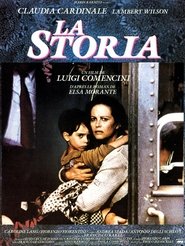detail profile cristina comencini
Peran Yang Di Mainkan Cristina Comencini
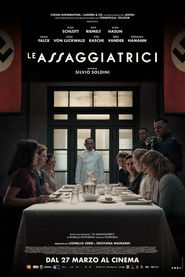 The film follows in the wake...
The film follows in the wake...The Tasters 2025
The film follows in the wake of young Rosa who flees bomb-stricken Berlin in the autumn of 1943 and heads to a small, isolated village near the eastern border. This is where her in-laws live and where her husband, who’s deployed on the front, has advised she take shelter until the war ends and he returns. Rosa soon discovers that this seemingly sleepy village conceals a secret: in the forest bordering the hamlet is Hitler’s headquarters, the Wolf’s Lair.
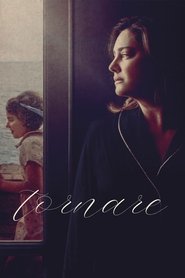 Cristina Comencini defines the film as...
Cristina Comencini defines the film as...Tornare 2019
Cristina Comencini defines the film as a "thriller of the soul." It's the story of a woman who returns to Italy from the US to attend the funeral of her late father, an American admiral living in Naples. Here she meets a man who seems to know too many things about her.
 The story of Italian cinema under...
The story of Italian cinema under...Cinecittà Babilonia: Sex, Drugs and Black Shirts 2017
The story of Italian cinema under Fascism, a sophisticated film industry built around the founding of the Cinecittà studios and the successful birth of a domestic star system, populated by very peculiar artists among whom stood out several beautiful, magnetic, special actresses; a dark story of war, drugs, sex, censorship and tragedy.
 Lucia and Maria are two best...
Lucia and Maria are two best...Something New 2016
Lucia and Maria are two best friends, who have known each other from the beginning of their life, but have very different tastes and behaviors. Lucia is done with men, Maria, on the contrary, cannot be without one. One night, the perfect man shows up in Maria's bed: handsome, sensible, mature and passionate.The next morning brings up misunderstandings and lies which make the two friends split up and take a break for themselves. Maybe that young man met by chance is really the one every woman is looking for, because with his simple theories he manages to paint the perfect picture of the two women's lives.
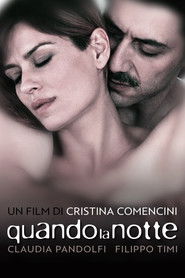 After meeting during their vacation two...
After meeting during their vacation two...When the Night 2011
After meeting during their vacation, two young people with solitary lives suddenly come into a relationship that could benefit both of them.
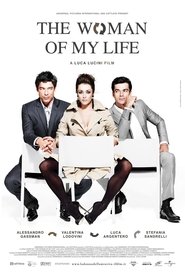 Longtime Italian cinema star Stefania Sandrelli...
Longtime Italian cinema star Stefania Sandrelli...Woman of My Life 2010
Longtime Italian cinema star Stefania Sandrelli (The First Beautiful Thing) is Alba, the mother of two very different adult sons. While Giorgio is a playboy who constantly cheats on his wife, Leonardo (Luca Argentero, Eat Pray Love) is always unlucky in love. When Leonardo finally meets the woman of his dreams, Sara, he brings her home to meet the family, but it appears this is not the first time that Sara has met Giorgio. Directed by Luca Lucini and stars Luca Argentero, Alessandro Gassman and Stefania Sandrelli.
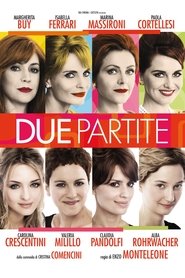 Every Thursday a group of ladies...
Every Thursday a group of ladies...The Ladies Get Their Say 2009
Every Thursday a group of ladies would gather to play cards and discuss their loves, lives and children while their daughters played in the next room. Thirty years later, the daughters meet at a funeral for one of the mothers. Like their mothers, they discuss their hopes, dreams and fears.
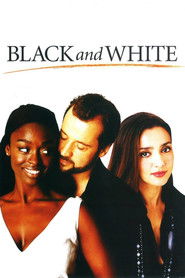 Racial integration is Elenas profession and...
Racial integration is Elenas profession and...Black and White 2008
Racial integration is Elena's profession and passion, not only filling her working day as a cultural mediator assisting immigrants, but spilling over into her home life as well. All too often her husband Carlo must attend charity events where he feels distinctly out of place. During one of these evenings, Carlo meets Nadine, a beautiful black woman.
 Sabina has a regular life She...
Sabina has a regular life She...Don't Tell 2005
Sabina has a regular life. She is satisfied with her job and her love for Franco. Lately nightmares start disturbing her, and almost in the same time she discovers to be pregnant. Step by step she remembers her childhood spent within a severe middle-class family. But a big secret is hidden within her heart. Sabina wants to contact again her brother, a University teacher in the US, to try to understand what is happened in their past. What is the secret? She is determined to bring clarity and serenity in her life. She finally manages to free herself from her "beast in the heart".
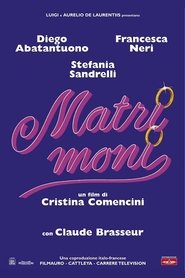 Matrimony is a drama about the...
Matrimony is a drama about the...Marriages 1998
Matrimony is a drama about the complexity of relationships. On Christmas Eve, perfect housewife Giulia Francesca Neri is worried about a family heirloom which has cracked and rushes to the junk shop to get it repaired -- little anticipating her perfect marriage is about to fall to pieces as well. While everyone in Bologna is making last minute preparations, Giulia runs into her childhood sweetheart, Fausto Paolo Sassanelli. The meeting rekindles old feelings and Giulia realizes that to create the perfect marriage which everyone adores, she has sacrificed her own personality. While waiting to meet her parents at the station, she climbs into a departing train and disappears. The family slowly disintegrates, as if she were the binding element.
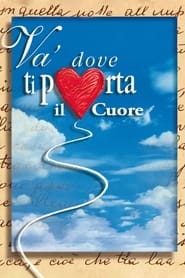 The complicated travails of several generations...
The complicated travails of several generations...Follow Your Heart 1996
The complicated travails of several generations of Italian women provide the basis for this drama that is based on a novel by Susanna Tamaro. It begins with the peaceful death of Olga, the elderly family matriarch. Marta, her granddaughter returns from the US to attend the funeral and once in Olga's villa in Trieste, begins reading her grandmother's diary. Olga's story unfolds via flashback. As a young woman, Oldga had to marry Antonio a man she didn't love. Later she became passionately involved with a handsome doctor at the local spa. He impregnates her and shortly thereafter dies in a terrible car wreck. The result of their love is Illaria, who grows up to be terribly neurotic. She bears Marta and then she too dies in an automobile accident, leaving Marta to be raised by Olga.
 In this romantic story a couple...
In this romantic story a couple...Merry Christmas... Happy New Year 1989
In this romantic story, a couple (Michel Serrault and Virna Lisi) who have been married for over forty years are forced to separate, one to each of their two children's families, when they can no longer pay the rent on their longtime apartment. Absence, in this case, refreshes their memory of the love they have shared, and they take to meeting one another furtively in hotel rooms for sex and affection. One summer, as each of their daughters families takes them on separate vacations, they have had enough, and elope, finding contentment as lighthouse keepers off the coast of Sicily.
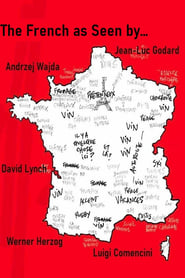 In 1988 Figaro magazine asked a few...
In 1988 Figaro magazine asked a few...The French as Seen by… 1988
In 1988, Figaro magazine asked a few famous directors to direct a series of short movies to celebrate the 10 years of the revue. The movies have been released for the French revolution bicentenary. Includes: Werner Herzog's Les Gaulois, David Lynch's The Cowboy and the Frenchman, Andrzej Wajda's Proust contre la déchéance, Luigi Comencini's Pèlerinage à Agen, Jean-Luc Godard's Le dernier mot.
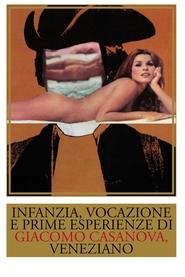 Through the childhood and adolescence of...
Through the childhood and adolescence of...Giacomo Casanova: Childhood and Adolescence 1969
Through the childhood and adolescence of Signor Giacomo Casanova (from his memoirs), this is a description of how people lived in 18th-century Venice: their customs, habits, medicine, religion, and--most of all--the omnipresence of hypocrisy.
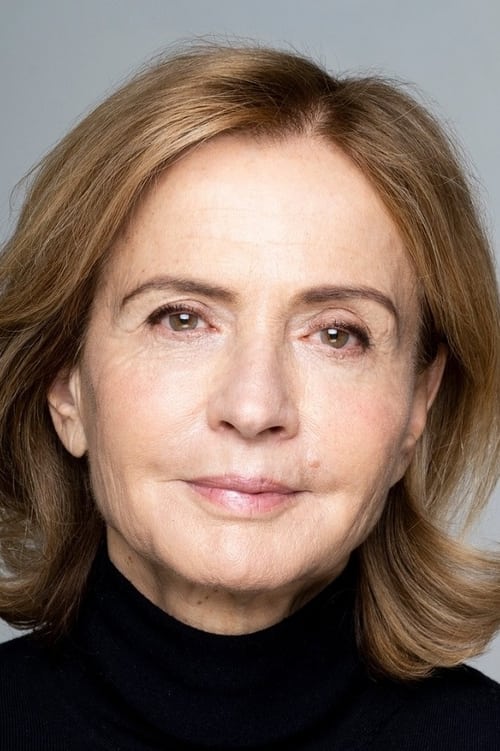
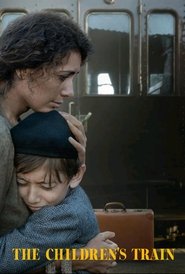 In late 1940s Italy a mother...
In late 1940s Italy a mother...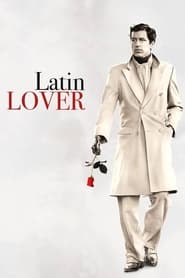 The five daughters of a famous...
The five daughters of a famous...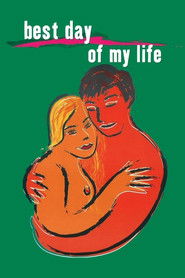 The lively goingson of a modern...
The lively goingson of a modern... Martina lives in the Romes zoo...
Martina lives in the Romes zoo...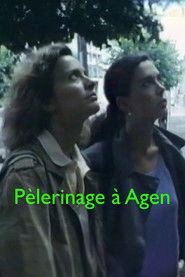 Christina and Francesca Comencini go on...
Christina and Francesca Comencini go on...